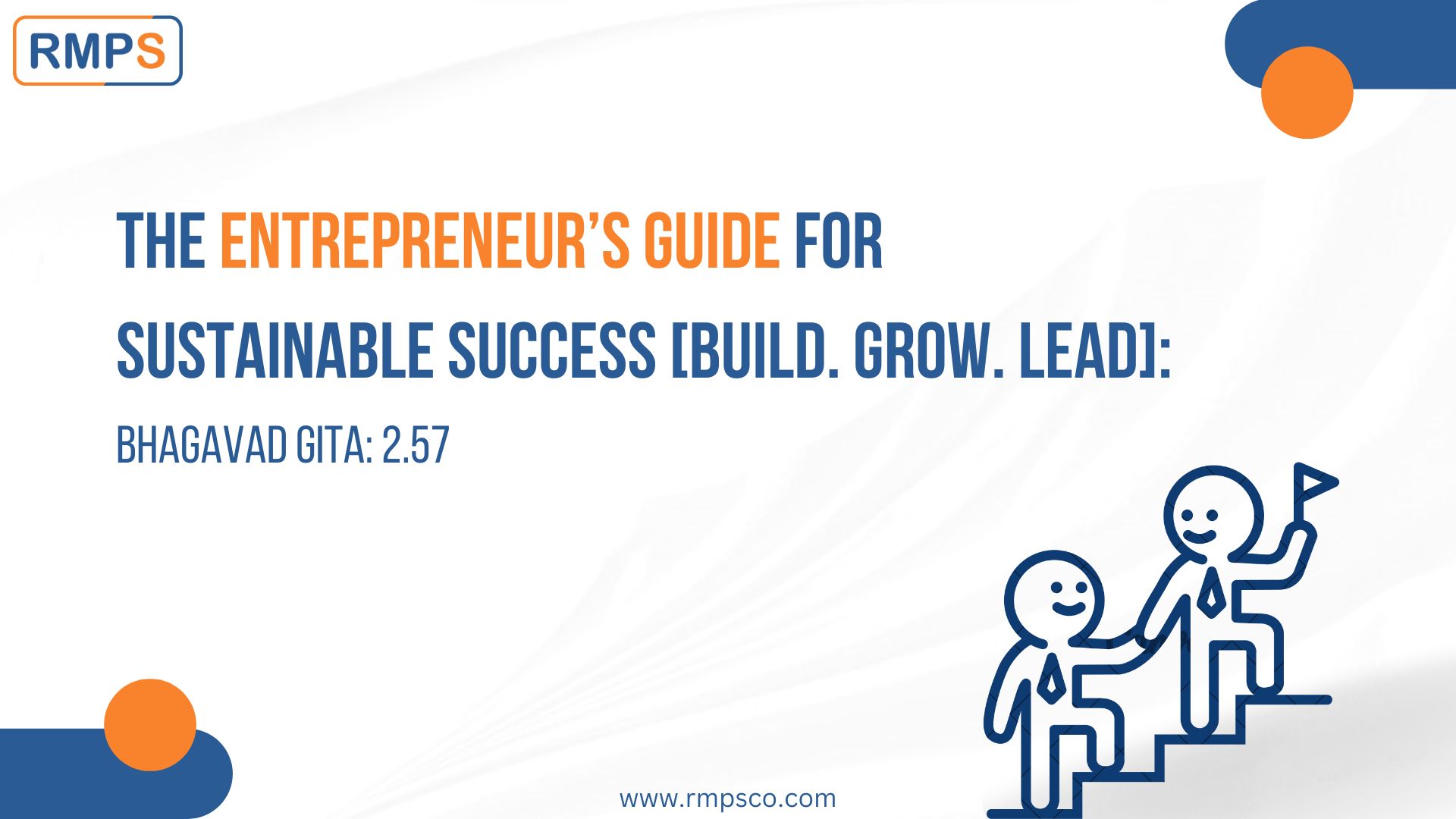
Bhagavad Gita: Chapter 2, Verse 57
Sanskrit Verse:
य: सर्वत्रानभिस्नेहस्तत्तत्प्राप्य शुभाशुभम् |
नाभिनन्दति न द्वेष्टि तस्य प्रज्ञा प्रतिष्ठिता ||
Translation:” He who remains unattached to everything, neither rejoicing when meeting with good nor despising evil, is firmly fixed in perfect wisdom.”
“He who remains unattached to everything, neither rejoicing when meeting with good nor despising evil, is firmly fixed in perfect wisdom.” — Bhagavad Gita 2.57
Entrepreneurship is an emotional rollercoaster—wins bring euphoria, losses bring disappointment. But what if the secret to long-term success lies in emotional stability?
Bhagavad Gita Verse 2.57 teaches us that true wisdom comes from detachment—neither celebrating victories excessively nor lamenting failures. For entrepreneurs, this wisdom is the foundation of sustainable success.
Entrepreneurial Insights from Verse 2.57
Krishna emphasizes the importance of neutrality and detachment, which is essential for decision-making in business. Entrepreneurs who can maintain balance, regardless of external circumstances, are better equipped to sustain and grow their ventures.
Lessons for Entrepreneurs
Stay Unshaken by Success or Failure: Business cycles fluctuate; wise leaders do not become overly excited by wins or discouraged by setbacks. Example: Jeff Bezos maintained Amazon’s long-term vision despite early financial losses.
Make Decisions Objectively:
- Emotional highs and lows can cloud judgment. A steady mind allows for rational choices.
- Actionable Tip: Base key business decisions on data and strategy rather than impulse.
Detach from External Validation:
- Long-term impact, not just profits or public approval, measures true success.
- Practice: Focus on innovation and value creation rather than short-term market reactions.
Develop Emotional Intelligence:
- Leaders must remain composed, especially during crises, to inspire confidence in their teams.
- Example: Satya Nadella’s empathetic leadership transformed Microsoft’s culture and growth.
Building a Resilient Business Mindset



By cultivating this mindset, entrepreneurs can navigate uncertainty with clarity, ensuring sustainable growth and long-term success.
Practical Strategies to Cultivate Detachment




The Entrepreneur’s Path to Wisdom
Entrepreneurship is not just about strategy—it’s about mindset. Verse 2.57 of the Bhagavad Gita teaches that true wisdom lies in neutrality, resilience, and detachment. By embracing this principle, entrepreneurs can build businesses that are not only financially successful but also mentally and emotionally sustainable.
LinkedIn Link : RMPS Profile
This article is only a knowledge-sharing initiative and is based on the Relevant Provisions as applicable and as per the information existing at the time of the preparation. In no event, RMPS & Co. or the Author or any other persons be liable for any direct and indirect result from this Article or any inadvertent omission of the provisions, update, etc if any.
Published on: February 21, 2025
